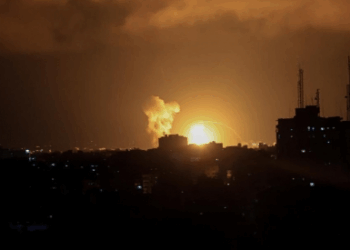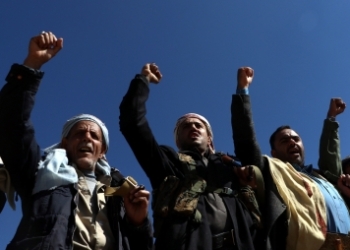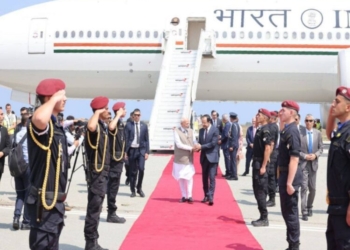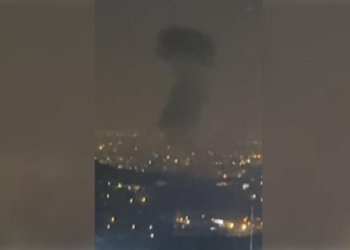Khartoum: As the fighting between the Sudanese Army and the paramilitary Rapid Support Forces (RSF) enters the fourth week, the residents of the Sudanese capital Khartoum are confronted with more hardships due to a lack of basic services.
Residents in Khartoum, Omdurman and Bahri (Khartoum North) are going through a serious crisis that features a short supply of bread, water and electricity as well as the exposure of water and electricity facilities to military strikes, Xinhua news agency reported.
On Friday, people who fled shortly after the fighting are left with no choices but to re-emerge in a number of neighbourhoods in the Sudanese capital, where they are seeking to buy some bread and other necessities.
Only a few bakeries are still open in the three cities of the capital, but they are unable to supply enough food due to the severe shortage of flour, ongoing power outages, and the lack of cooking gas.
To solve the problems, Sudanese Finance Minister Jibril Ibrahim announced on Friday the establishment of two committees, one for handling humanitarian emergencies and the other for monitoring the flow of goods and services.
“We are making every effort with the parties to provide food and fuel,” Ibrahim said in a statement on Friday.
“Safe passages must be kept open for medical staff to reach their workplaces, and for engineers to fix electricity and water problems,” he added.
Several hospitals are out of service due to a shortage in medicines. According to the Sudanese Doctors Union, medical staff are unable to reach hospitals, and health facilities have either been destroyed or seized and turned into military barracks.
“We reject any military presence inside medical facilities,” the union said in a statement on Friday.
The union urged the conflicting parties to “prevent the armed presence in or near medical facilities and medical institutions, stop using them as bombing platforms, and stop turning them into a battlefield”.
Additionally, Internet services are hardly accessible to the residents of Khartoum, who are also facing difficulties in communicating through the main telecommunications networks.
Due to repeated power outages and fuel shortage, the telecommunications sector in Sudan has had a tough time in providing services to subscribers ever since the clashes broke out between the army and the RSF on April 15.
MTN Communication Sudan announced on Friday that it had to suspend all services provided to subscribers in Khartoum because of power outages at its facilities.
“The generators’ fuel could not be transported due to the current circumstances. We appeal to the concerned authorities to find urgent solutions,” the company said in a statement on its Facebook account.
Meanwhile, the clashes between the army and the RSF continued on Friday despite the two sides earlier this week had agreed to a seven-day truce extension proposed by the regional African bloc Inter-Governmental Authority on Development.
The Sudanese Army said on Friday that it has sent negotiators to the Saudi port city of Jeddah to discuss the humanitarian truce as part of a Saudi-American initiative to end the conflict in the African country.
Sudan has been witnessing deadly armed clashes between the Sudanese Army and the RSF in the capital city of Khartoum and other areas since mid-April, with the two sides accusing each other of initiating the conflict.
According to UN statistics, thousands of Sudanese citizens have been displaced or forced to seek refuge in safe areas in Sudan and neighbouring countries, including Egypt, Ethiopia and Chad.
So far, the deadly clashes have left 550 people dead and 4,926 others wounded, according to the Sudanese Health Ministry.
(IANS)














